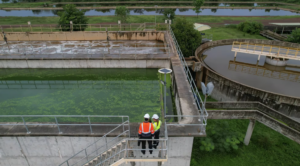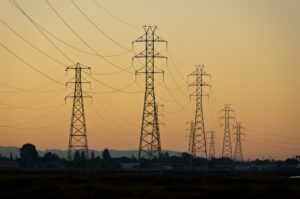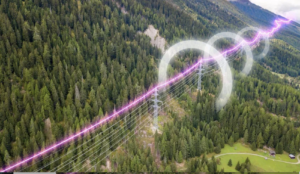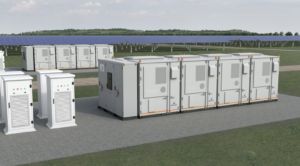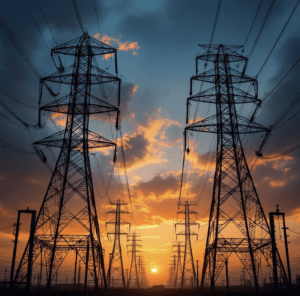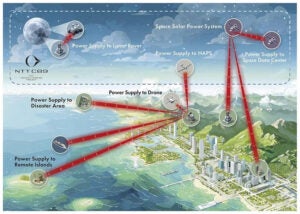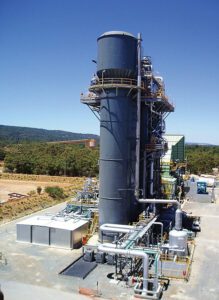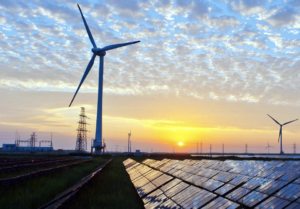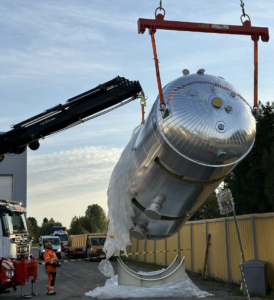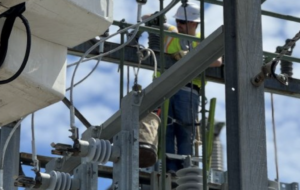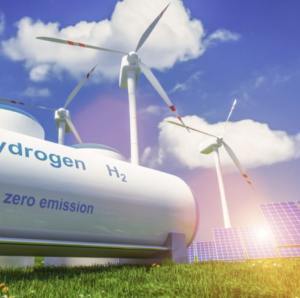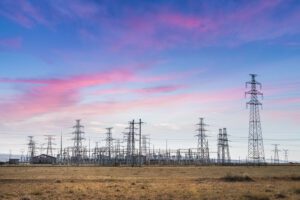power grid
-
O&M
Xylem Advances Grid Intelligence with Sensus Evolve Platform
Xylem Inc., a global water solutions company, announced the launch of Sensus Evolve, its new intelligent grid platform designed to help electric utilities gain deeper insight, act faster, and adapt to a rapidly changing energy landscape.
-
Interview
The POWER Interview: Grid Integration of DERs
Integrating distributed energy resources (DERs) such as solar, wind, batteries, and electric vehicles into the power grid is an important part of the energy transition. Utilities and transmission system operators know they need more flexibility when it comes to power generation and delivery, which involves modernizing infrastructure, using advanced controls, and developing new market rules to manage two-way power flow.
-
Commentary
The Next Blackout Won’t Be Caused by a Storm—It Will Be Sparked by a Talent War
Imagine a city going dark, not from a hurricane or a cyberattack, but because there weren’t enough skilled workers to restore power after a routine failure. While utilities scramble to fill critical roles, hyperscale data centers are hiring the same talent at premium salaries. The grid’s biggest vulnerability isn’t hardware; it’s a talent war that utilities are losing.
-
Distributed Energy
Grid Edge DERMS: The Ultimate Enabler of the Decentralized Grid
Electricity management is undergoing a fundamental shift. The traditional model of one-way power flows is giving way to a dynamic system shaped by distributed assets and active consumer participation. Renewables are proliferating, distributed energy resource (DER) adoption is accelerating and assets are emerging at the grid edge.
-
Data Centers
Data Centers, the Grid, and the Assumptions That Don’t Hold Up
The power sector is grappling with a fundamental mismatch: hyperscale data centers demand electricity at unprecedented speed and scale, while the infrastructure to serve them operates on timelines measured in years, not months. According to Stephen Empedocles, PhD, founder and CEO of Clark Street Associates (CSA), an advisory firm specializing in government funding for technology […]
-
Commentary
Powering the AI Revolution: Why the Energy Race Is the AI Race
The power of U.S. innovation and market incentives cannot be underestimated. The convergence of a business-driven energy transition and the explosive growth of artificial intelligence (AI) have exposed a critical bottleneck within our energy grid.
-
T&D
Prisma Photonics Deploys Grid Monitoring Equipment in California
Prisma Photonics, a global provider of advanced optical fiber sensing technology, announced a trial deployment with California’s Pacific Gas and Electric Company (PG&E) to deploy grid monitoring solutions traversing some of California’s most challenging geographic areas in San Luis Obispo and Humboldt counties. The project comes as California’s electrical grid faces surging data center demand, […]
-
Hybrid Power
Wartsila Supporting Major Australian Energy Storage System
Technology group Wärtsilä said the company will deliver the largest DC-coupled hybrid battery energy storage system (BESS) in the National Electricity Market (NEM) in Australia, reflecting a growing trend toward hybridization of storage assets with co-located renewable generation.
-
Trends
Why This Summer’s Heat Proved the Case for a Smarter Grid
The summer of 2025 pushed the U.S. electric grid to its limits. A brutal heat dome swept across the East Coast, while a powerful derecho tore through the Midwest, leaving more than 28,000 homes and businesses without power in Iowa alone. Demand surged to record levels. Yet despite the pressure, the grid avoided major blackouts. Smarter, more flexible systems are beginning to deliver results, but the need for faster transformation is undeniable.
-
Research and Development
Laser Wireless Power Transmission Breakthrough Could Transform Remote Energy Delivery
NTT Inc. and Mitsubishi Heavy Industries Ltd. (MHI) conducted an optical wireless power transmission experiment using a laser beam to wirelessly transmit energy over a distance of one kilometer. By irradiating a laser beam with an optical power of 1 kW, the team succeeded in receiving 152 W of electric power. This marks the world’s […]
-
Trends
Why Power Plants Need AI That Engineers Can Trust
America’s power producers face growing pressure to do more with less. A rapidly evolving grid, increasing demand, aging infrastructure, and policy uncertainty have created a system where traditional approaches to reliability are no longer enough. The North American Electric Reliability Corporation (NERC) recently issued its 2025 RISC report, highlighting the leading risks facing America’s power […]
-
Trends
Transforming the Grid: Forging a Path to Resilience
The U.S. power grid has delivered electricity reliably for decades. However, today the grid faces challenges that are driving transformation, reshaping its operational scope and the technologies on which it relies.
-
Commentary
AI and the Grid: Smarter Paths to Renewable Integration and Grid Modernization
According to the U.S. Department of Energy, more than 70% of the nation’s grid transmission lines and transformers are more than 25 years old, straining under the pressures of rising electrification and renewable integration. As power producers, utilities, and grid operators push toward decarbonization targets, the need for more intelligent, responsive, and resilient grid infrastructure […]
-
Commentary
Why Grid Hardening Is No Longer Optional
In the past decade, we have seen “once in a century storms” almost every year, flash floods wiping out entire towns, and extreme heat that melts shoes on pavement. Our climate is becoming more extreme, and we need to be proactive in preparing our infrastructure for more to come. The annual average for U.S. billion-dollar […]
-
Cybersecurity
Power Grid Security in the AI Era: Why Energy Dominance and Cybersecurity Can’t Be Separated
In a special edition of The POWER Podcast, released in collaboration with the McCrary Institute’s Cyber Focus podcast, POWER’s executive editor, Aaron Larson, and Frank Cilluffo, director of the McCrary Institute for Cyber and Critical Infrastructure Security and Professor of Practice at Auburn University, discuss the evolving power grid and cybersecurity challenges. Specifically, they highlight […]
-
Microgrid
When AI-First Becomes Practice, Your Energy Grid Better Be Ready
From healthcare to aviation, artificial intelligence (AI) is increasingly being used to close operational gaps and garner efficiencies in key industries. Indeed, 78% of respondents in McKinsey’s State of AI Survey for 2025 indicated that their organization is using AI for at least one business function. This year and beyond, the question of AI adoption […]
-
Commentary
Virtual Power Plants: How to Power the Energy Economy by Stretching Today’s Grid
The challenge posed by surging demand for electricity from data centers and high-performance computing facilities presents an ideal time for innovative energy solutions that efficiently improve grid reliability and increase the availability of clean, affordable electricity. Not only does the U.S. risk missing more than $100 billion of artificial intelligence (AI) market growth over the […]
-
Commentary
Unlocking Opportunities in AI Through Power Demand, Administration’s Initiatives
The U.S. is bracing for a reality where artificial intelligence and data centers overwhelm the power grid, and rightfully so, as America seeks to lead the global AI race. But this push is coming at the same time that the federal government is reshuffling fiscal priorities and prioritizing energy independence. While that dynamic may seem like a challenging juxtaposition, one thing is clear: regardless of political affiliation or preferred priority, if the U.S. wants to lead the world in AI, it must power it first.
-
T&D
Adding Stability and Reliability to the Western Australian Grid
Large distances are something you get used to if you live in Australia. Perth, on the west coast, is about 2,500 miles away from Brisbane on the east coast. Even within the state of Western Australia (WA), the
-
T&D
How Decreasing Inertia Is Affecting Power Grids and What to Do About It
People in the power industry understand inertia and its importance to grid stability. As large thermal power plants and other inertia-providing units are replaced with renewable resources that provide no inertia, grid stability is at risk. Cost-effective solutions are available today, however, to maintain and even enhance grid operations. Concerning power grid operation, inertia refers […]
-
Renewables
Utilities, Grid Operators Grapple with Adding Renewable Energy
Power generators and transmission system engineers have to rethink their planning strategies, and must continue to develop tools to allow more solar, wind, and other forms of renewable energy to populate the power grid. Integrating renewable energy resources such as solar and wind into the electric power grid involves addressing challenges, starting with the intermittent […]
-
T&D
Hitachi, Southwest Power Pool Join to Develop AI-Based Grid Solution
The Southwest Power Pool (SPP) regional transmission organization (RTO) is joining with energy technology company Hitachi on development of what the groups say is an artificial intelligence (AI)-based solution to support power transmission reliability and flexibility challenges.
-
Electrification
Europe Taps Electric Boilers to Balance the Grid
For engineering management and engineers, the total power market is rapidly changing globally. Consequently, North American district heating networks and industrial processors are taking note of key developments in the European power market today. Specifically, Finland has set one of the most advanced climate policies in the region, committing to carbon neutrality by 2035.
-
T&D
Why Grid Hardening Needs to Be Smarter, Not Just Stronger
While many utilities are hardening power grid infrastructure by upgrading poles and wires—a necessary step—brute force solutions alone won’t be enough. To truly future-proof the grid, resilience must be rooted in intelligence via systems that anticipate, adapt, and respond dynamically.
-
T&D
Avangrid Investing $41 Million to Rebuild NY Grid Infrastructure
Avangrid said it would invest $41 million across five projects in New York State to improve the capacity and reliability of the regional power grid. The company, a member of the Iberdrola Group, said the funding for the grid around Ithaca, New York, builds on Avangrid’s effort to modernize New York’s electrical and gas infrastructure.
-
Commentary
Microgrids with Hydrogen: Supporting Energy Systems for the 21st Century
Why microgrids with hydrogen for backup power will create significant benefits for consumers and utilities. The energy grid in the U.S., particularly in regions like California, Texas, and the Northeast, is overstretched and increasingly unable to meet modern demands. California’s grid, for instance, is facing unprecedented strain with the sale of more electric vehicles (EVs), […]
-
T&D
Understanding the April 2025 Iberian Peninsula Blackout: Early Analysis and Lessons Learned
On April 28, 2025, at 12:33 p.m. local time, a significant blackout affected the entire Iberian Peninsula, plunging Spain and Portugal into darkness. During a webcast on May 6, Sean McGuinness, Transmission and Distribution Protection Research Program Manager with EPRI, provided background on the Spanish and Portuguese power grids, and an overview of the events […]
-
Electrification
How PG&E Is Supporting EV Growth Without Expensive Grid and Home Upgrades
As electric vehicles (EVs) surge in popularity, many American homeowners are discovering a hidden obstacle to the EV transition: the aging electrical infrastructure of the nation’s housing stock. While
-
T&D
Delivering on the Promise of Smart Grid — Transforming Grid Operations with Improved Intelligence and Action
Smart Grid technology arrived with a bang more than two decades ago, but the first implementations often overpromised and underdelivered. Smart Grid 2.0, however, integrates new technologies to provide
-
Markets
PJM Market Challenges Demand Bold Reforms, Experts Warn
Energy experts have called for bold reforms—from transmission planning to permitting streamlining and faster interconnection approvals—to prevent further volatility and ensure PJM Interconnection meets its reliability mandate without disproportionately burdening consumers. During a March 19 webinar hosted by Advanced Energy United—a trade group that advocates for policies supporting the transition to 100% clean energy—industry experts […]

